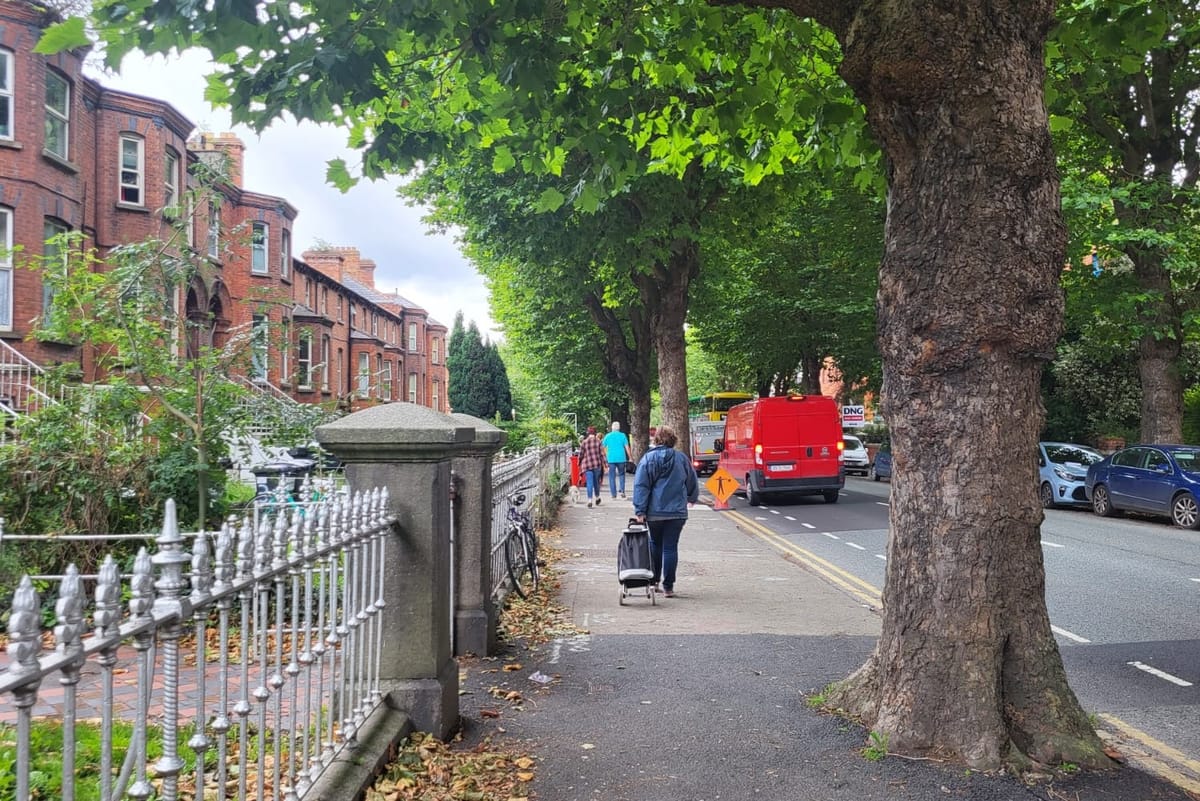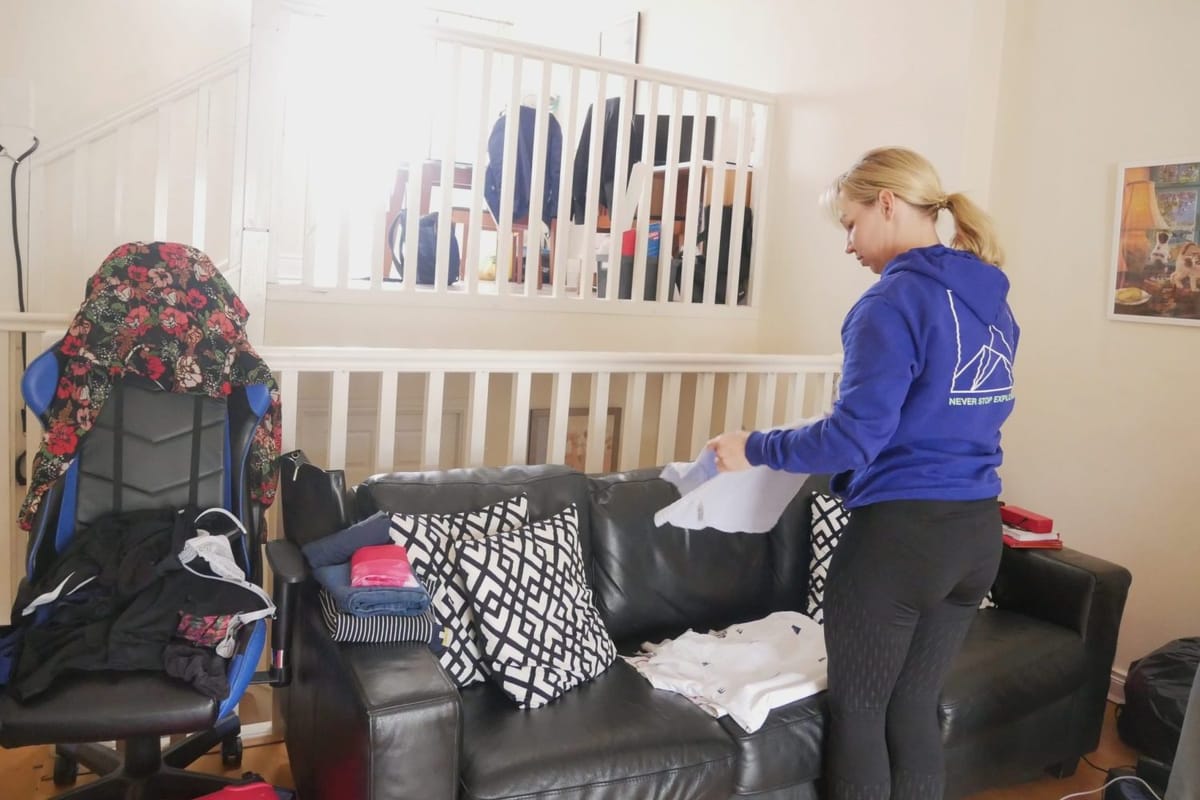Dr Strangelove
Registered User
- Messages
- 2,287
That’s the “written record”.The 1911 Census record was only published online relatively recently.
That’s the “written record”.The 1911 Census record was only published online relatively recently.
And in that particular case it's demonstrably wrong, not as a record of who was living in a particular household on a given night, but who was living there on a habitual basis at that time.That’s the “written record”.


"Rent a room" does not apply to self contained units. Its for people renting out a room and thus operating like a house share, except that one resident actually owns the building.Going on the household definition above, I would suggest that some rent a room tenants particularly those in a self contained unit would consider themselves a separate household to the principle occupier and would complete a separate census form. In such a case they would be included in the figure of renting from private landlords.
Citizens information “if you rent out a self-contained unit in your home, such as a converted garage attached to your home or a basement flat, the rights and obligations under residential tenancies legislation apply to you. For example, you must register the tenancy with the Residential Tenancies Board (RTB) every year,Rent a room" does not apply to self contained units. It’s for people renting out a room and thus operating like a house share, except that one resident actually owns the building.
No, not 2 different interpretations. There are 2 different pieces of legislation. It's possible for a self contained unit, directly attached to a house, to qualify for 'rent a room' tax relief, but still need to be registered with RTB.Max stuff total contradictory interpretations from two state agencies.
The technical term is "licensee" not guest. A house guest does not pay rent.Citizen info says rights/ obligations apply. However this is not the case if you are sharing your home; the sharer has a legal status of guest and not tenant.
While status may be equivalent to that afforded a guest, and some sites use the term guest in an attempt to simplify the language, the legislation covering this does not reference the term 'guest' when describing their rights or entitlements.the legal status is that of a guest, in that they can be asked to leave at any time, as can a guest in your home.
What is a company though? A lot of disinformation is around in this area, with the false narrative that companies who own several rental units are all giant money management companies domiciled in an offshore tax haven. The reality is that a lot of these companies have been formed by individuals of family groups with several rental properties each to roll together their investment properties into a single company. There's LOADs of these now - they are really no different to the serial landlords of 20 years ago. Even 20 years ago, a huge chunk of the rental market in Cork was controlled by just two entities: a family of moneylenders, and an elderly couple who had a large office off the Quays with a whole large bookshelf dedicated to the paperwork. I recall a taxi driver in 1997 telling me he had 5 rentals, and the laziest, most incompetent colleague I had in my call centre days was so because his real earner was the 10 rental properties he held in 2022. (His "secret", as he said, was interest only loansI suspect given the stats (from a fews years back) where ratio of properties per LL is slowly increasing. That it was mostly the smaller LLs getting out. No idea if thats still true.
All that really matters is supply vs demand. The number of LLs or Number of properties (or tenancties) per LL, is a secondary issue. I doubt it significantly influences the stats or the market. IMO, a company is likely to push the profit margin more than small LL. But the primary driver will still be supply. IMO.
almost 80 per cent of rental properties in Dublin is under €250,000 while, outside Dublin, half are valued below €100,00 and almost 80 per cent under €150,000
Just read the oireachtas committee discussion on the big discrepancy between the CSO number of people renting from private landlords and the much lower number registered with the RTB.That's a pretty alarming number given it's such a high percentage of the total housing stock in AHBs. However, it still leaves a large variance which suggests that the click-bait headlines suggesting an exodus aren't based in fact. We wound need to see estimates of the number of mis-returns from the previous census to get a sense of whether the number of private tenancies is rising or falling. The questions didn't become any more difficult, so it's likely the rate of errors was reasonably consistent.
It will be very interesting to see the outcome of that. Accommodation numbers in student accommodation, AHBs, Ukrainian refugees should be known by one or more Government departments, but I suspect the challenge will be in getting them talking to each other and reconciling the data when they're all gathering the data in different manners for different purposes.I would have thought the vast majority of landlords are registered now but maybe not. The CSO are to carry out a matching exercise between rtb, cso, and lpt data to identify where the discrepancies are so it will discover if there really are thousands of dodgy landlords. The results from the CSO exercise will be interesting.
Suspect it will be like the hundreds of thousands 'vacant properties'; lots of noise & no substance.if there really are thousands of dodgy landlords